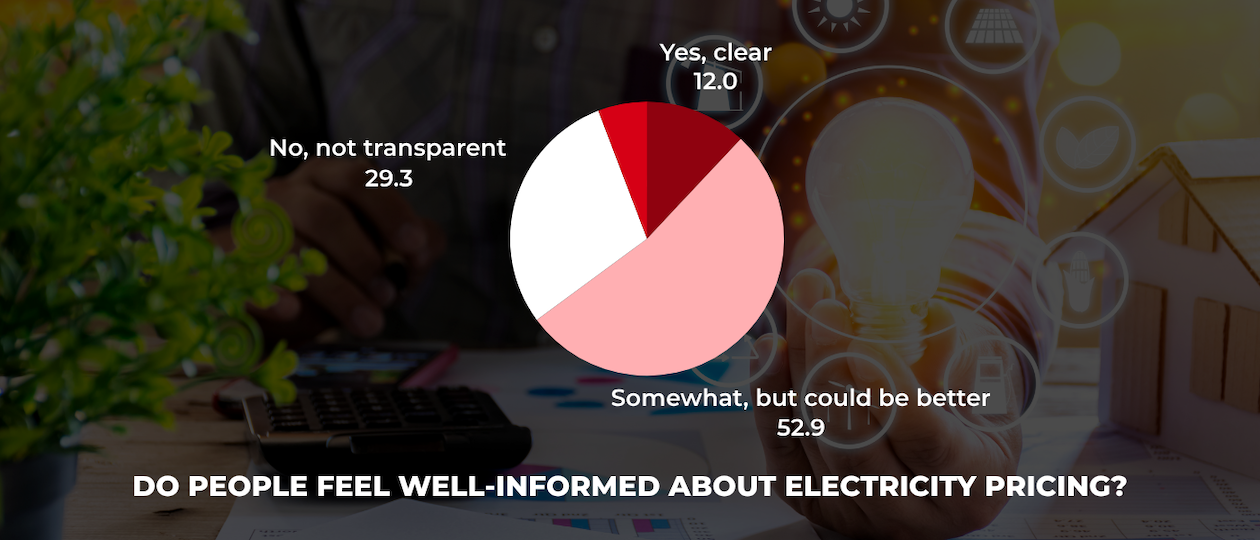
Singaporeans React to October 2025 Electricity Tariff Hike
As electricity tariffs rise in Singapore starting October 2025, Singaporeans are becoming increasingly aware of how energy costs shape their daily lives. A new study by Z.com Research, based on responses from 276 residents, uncovers a society that is well-informed, worried, yet ready to adapt through small but meaningful lifestyle shifts.
Widespread awareness, growing unease

Over 55% of Singaporeans say they are fully aware of the tariff increase, while another 29% have heard about it but lack details. This high awareness reflects strong media coverage and social conversation - yet also hints at confusion, as nearly one-third still do not clearly understand what the price adjustment means for them.

The emotional response is far from calm: a combined 85.8% express concern, with nearly 47% being very concerned. This level of anxiety reflects not just rising costs, but the feeling that household budgets are reaching a tipping point in one of the world’s most expensive cities.
Real impact on monthly budgets

Most respondents expect noticeable increases - 40.9% anticipate their bills will rise significantly, while another 47.8% foresee smaller but steady hikes. For a majority whose current monthly bills fall between SGD 100–200 (52.2%), even a modest increase can disrupt budgeting routines.

The psychological weight of cost escalation is clear: 37% say they could tolerate only a +SGD 20 rise before feeling “overburdened.” This narrow margin of comfort highlights Singaporeans’ cost sensitivity - a crucial insight for policymakers and utility providers alike.
Behavioral shifts: small actions, big intentions

When faced with higher bills, Singaporeans’ first instinct is practical restraint. 38.8% say they would reduce aircon usage - the top electricity consumer in most homes - while 27.5% would turn off standby devices more diligently. Only 22.5% say they would make no changes, showing that most households are ready to act, even if adjustments are modest.

Interestingly, 59.8% identify air conditioning as their biggest source of consumption, confirming public awareness of where savings can be achieved. This behavioral insight aligns with broader energy trends - aircon-heavy tropical nations often see consumer-driven reductions before government incentives take effect.
Long-term outlook: toward sustainable adaptation

If electricity prices continue rising over the next six months, 40.9% would reduce reliance on air conditioning altogether, opting for fans or improved ventilation. Another 27.9% would invest in energy-saving appliances, signaling a shift toward efficiency-focused spending rather than austerity.
Though still niche, interest in solar and smart home technologies (around 5% each) indicates early awareness of alternative energy options - a market that could expand with better affordability and incentives.
Yet, 20.7% say they would make no long-term changes, suggesting that while behavioral adjustments are immediate, deep structural shifts (like solar adoption or smart device upgrades) remain limited by cost, space, or practicality.
Sacrifices and priorities: electricity is essential, not optional

When asked what they would cut first if expenses rise, 36.2% said they would reduce electricity use before giving up lifestyle luxuries. Others would scale back dining out (25.4%) or shopping (19.6%). This finding reveals electricity’s emotional and practical centrality - it’s not a luxury to protect, but a necessity to manage.

Despite this, active tracking of usage remains inconsistent: only 24.3% monitor consumption regularly, while nearly 30% admit they rarely or never do. The data shows a gap between awareness and action, presenting opportunities for better public education and user-friendly monitoring tools.
Transparency gap and trust deficit

Public sentiment on information access remains lukewarm. Only 12% believe electricity pricing is clear and transparent, while 52.9% say it’s somewhat clear but could be better. A significant 29.3% feel pricing is not transparent at all.
This transparency deficit may amplify public anxiety. It suggests that even well-informed citizens crave clearer explanations - not just of how much tariffs rise, but why and how it affects their real-world bills.
Powered by your voice with Z.com Research
This study highlights a crucial truth: Singaporeans are informed, pragmatic, and willing to adapt - but they seek clarity and fairness as they navigate rising living costs. Insights like these start with everyday citizens who take a few minutes to share their views.
At Z.com Research, Asia’s trusted paid survey platform, your opinions shape real understanding of public life - from energy and finance to lifestyle and technology. If you’re already part of our panel, keep sharing your voice: every survey you take brings sharper insights and valuable rewards.
And if you’re new here, now’s the time to join. Sign up with Z.com Research to turn your perspectives into impact - and earn while doing it. Because every data point begins with you.
Click here to register and start earning today













